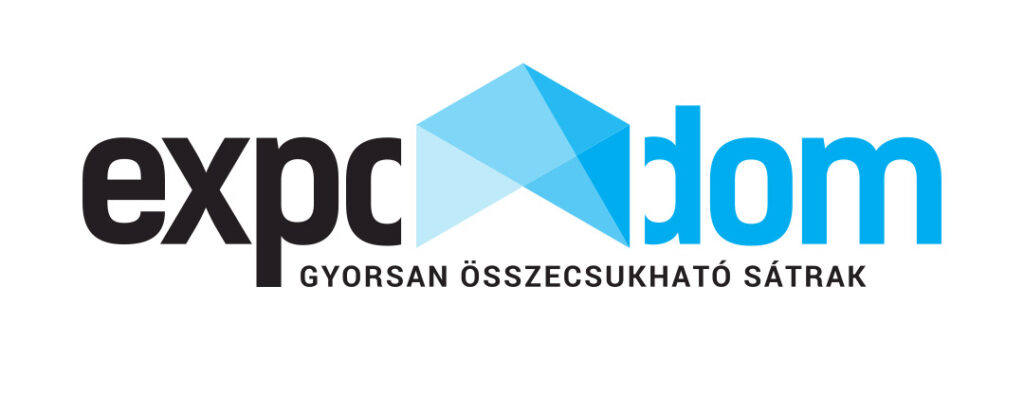In October, youth workers from Hungary, Italy, Bulgaria, Turkey, Romania, and Greece gathered in Selianitika, a picturesque town in Greece, to participate in a transformative Erasmus+ training course. The project, titled „Outdoor Activities Reinforce Youth for Social Inclusion,” was designed to use outdoor activities and sports as powerful tools for social inclusion. Over the week, participants engaged in a rich program of workshops, discussions, cultural exchanges, and excursions, all focused on developing skills to help young people with fewer opportunities feel included and empowered.
The first day focused on creating connections among participants through energizers, icebreakers, and social inclusion activities. To break down initial barriers, the organizers led various team-building exercises, including the “New Country” activity, where participants shared insights from their own cultures, and the “Blind People” activity, a powerful exercise that emphasized empathy and understanding. This was followed by a World Café workshop, where participants discussed the benefits of sports in supporting young people with fewer opportunities. The day set a warm and inclusive tone, with participants quickly forming friendships across borders.
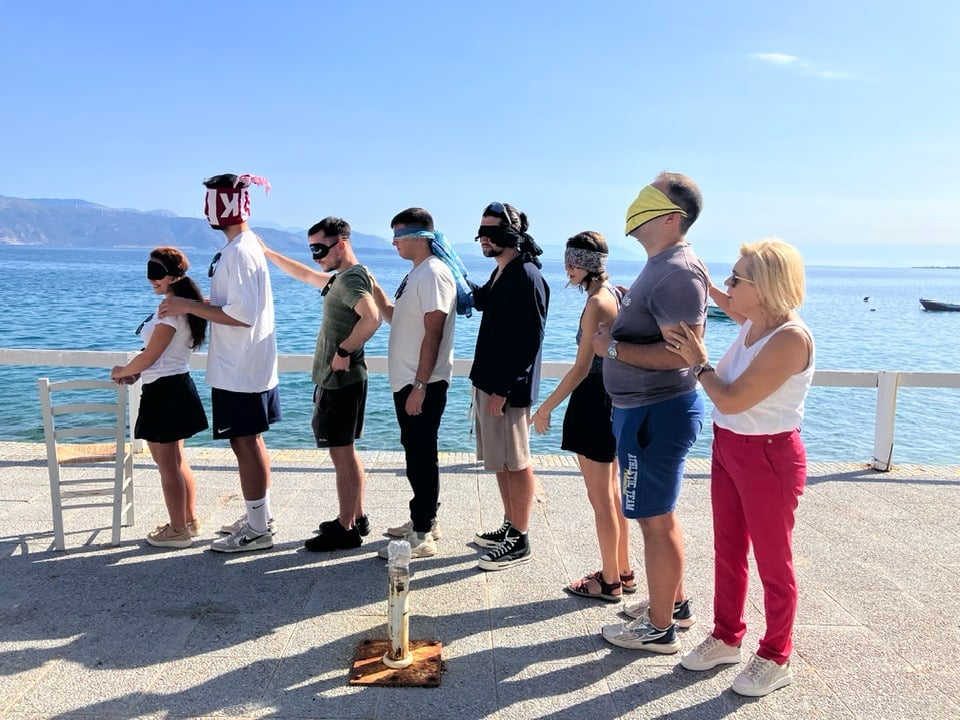
In the evening, the Romanian and Hungarian teams took the lead, showcasing their countries’ unique cultural traditions. Participants enjoyed traditional music, dishes, and folklore, creating an evening filled with laughter, learning, and cultural exchange. By sharing their heritage, participants began to see the deep connections that transcend cultural differences.
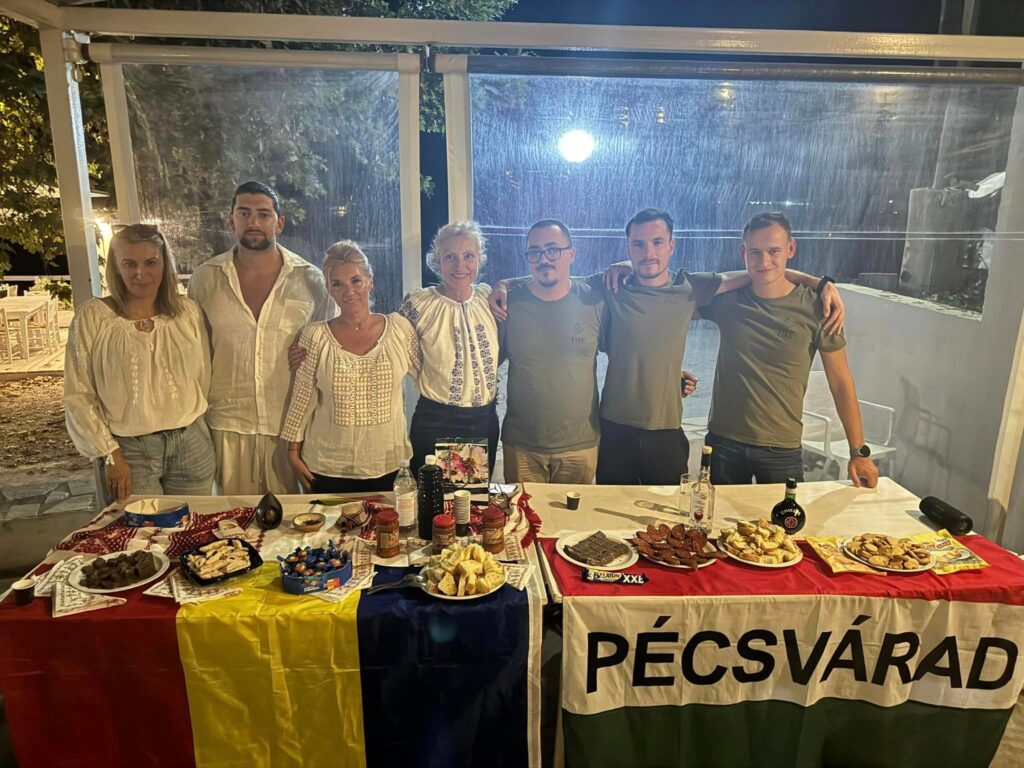
After the university visit, participants journeyed to the Archaeological Museum of Patras, marveling at ancient mosaics depicting gladiator games and sports from antiquity. The afternoon saw the group taking a ferry to a nearby beach, where they played sports and engaged in team-building activities. This blend of culture, movement, and connection underscored the project’s goal: to build bridges through shared experiences.
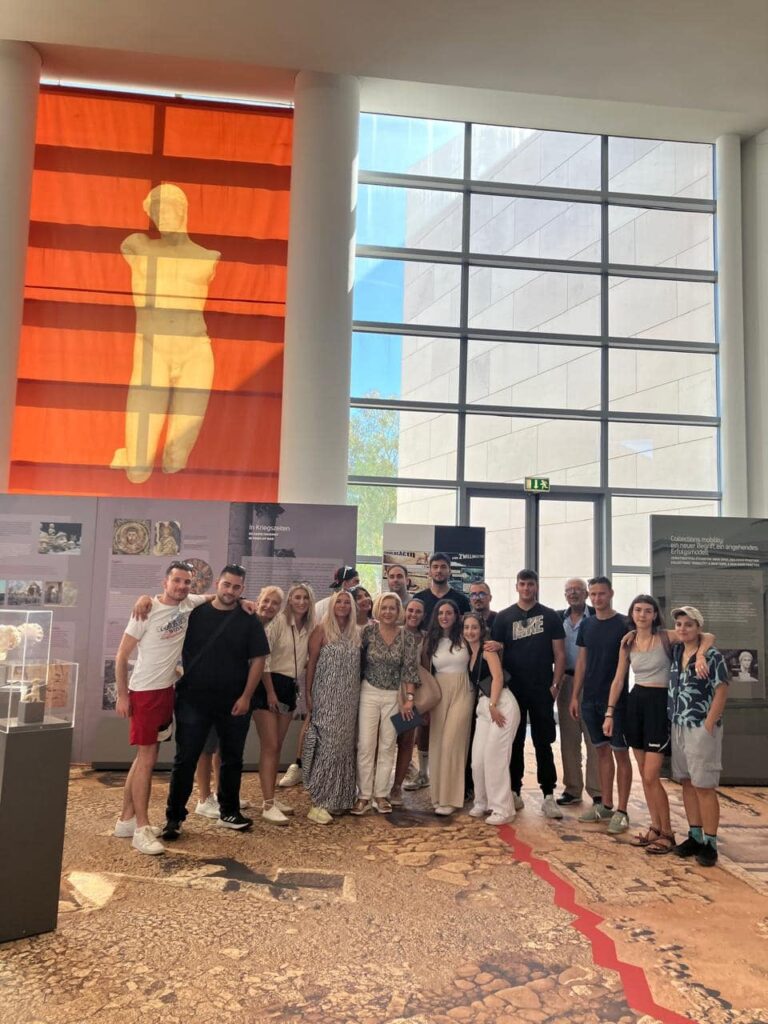
After a morning energizer to refresh body and mind, the group traveled to the Rio-Antirrio Bridge for outdoor activities. The bridge served as both a literal and symbolic structure, reminding participants of the importance of building connections. The activities emphasized how outdoor settings and physical activity could facilitate inclusion, helping participants gain practical experience in organizing inclusive sports events.
In the afternoon, the team channeled their collective energy into creating a podcast on social inclusion and sports, drafting content that reflected the lessons learned throughout the program. In the evening, Italian and Bulgarian teams hosted a cultural night, treating everyone to traditional foods, folk songs, and dances. Karaoke followed, with participants singing songs from each culture, deepening the sense of solidarity and mutual respect.

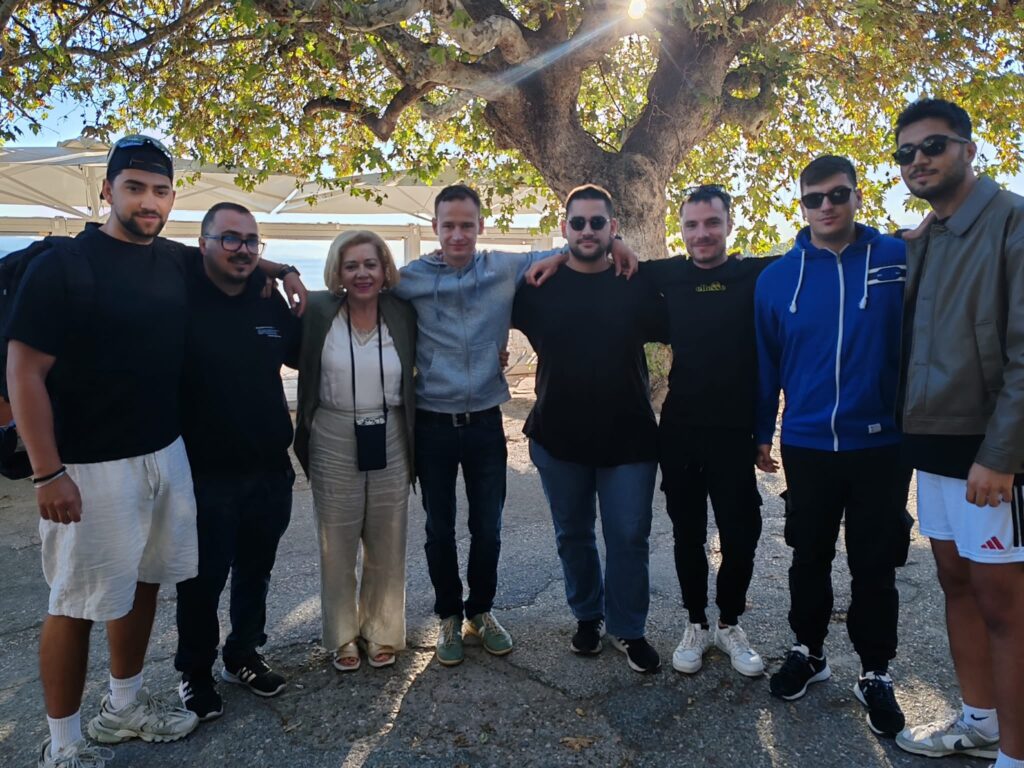
Through outdoor activities, shared traditions, and open dialogue, this diverse group of youth workers set an inspiring example of how unity, empathy, and shared experiences can help create a more inclusive society.


